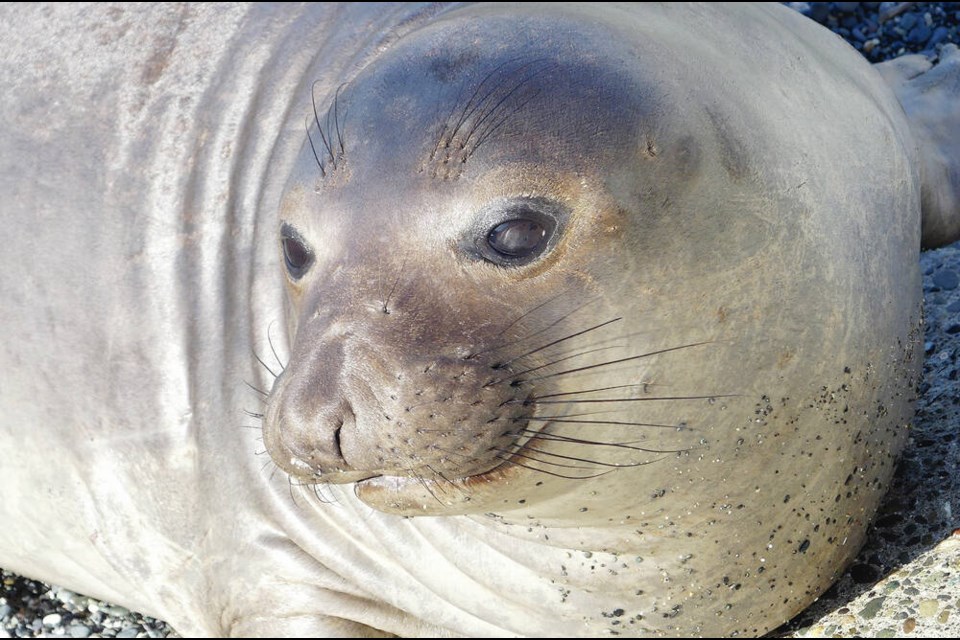Reports that people are getting their dogs and even their children to approach Emerson the elephant seal have prompted officials to consider yet another relocation for the animal if public behaviour doesn’t change.
“His celebrity is almost a detriment at this point,” fisheries officer Morgan Van Kirk said Tuesday. “A lot of people are getting too close trying to get selfies with him.”
The Department of Fisheries and Oceans confirmed on Monday that the two-year-old elephant seal swam about 34 kilometres a day to return to Victoria-area waters just six days after being relocated to an undisclosed beach on northern Â鶹´«Ã½Ó³»Island on April 5.
Van Kirk said DFO is receiving numerous daily reports of concerning behaviour around Emerson, including dog owners attempting to introduce their pets to the seal.
One “extremely concerning” report involved a child being encouraged to touch his nose to the seal, Van Kirk said. “Not only is he larger than a black bear, he’s over 500 pounds and a wild animal.”
Emerson was seen sunning himself in McNeill Bay Tuesday morning before dipping back into the water.
April and May is prime time for juvenile seals like Emerson to undergo the three-to-five week moulting process, during which they lose their hair and top layer of skin, then regrow their hair to stave off cold in the water. During the moulting process, seals stop eating and may lose up to 25 per cent of its body weight.
Seals spend most of that time dozing and lazily flipping sand onto themselves to stay cool, but are capable of fast movement and can be dangerous if they feel threatened, DFO said.
Disturbing marine mammals under any circumstance is prohibited under Canada’s fisheries regulations.
DFO fines can reach $100,000 and are regularly issued in the thousands and tens of thousands of dollars, the department said in a statement.
Van Kirk said northern elephant seals can also carry a host of human-transferable diseases, including bird flu.
Other possible outcomes of a seal encounter gone wrong include sealer’s finger, an infection that regularly led to amputations before an effective treatment was found in 1979.
Van Kirk said no fines have been issued so far to those who are disturbing Emerson, but DFO is following up on reported complaints. “It’s too soon in the process but we are investigating.”
The department is also partnering with volunteers at the B.C. Marine Mammal Response Network to educate the public, he said.
Another relocation could be potentially harmful for Emerson due to the amount of energy required of the seal, but officers may be forced to act if there are threats posed to and by the public, Van Kirk said.
A relocation may also happen if Emerson once again finds his way into traffic, as happened this month at Gorge and Admirals roads.
“We’re taking a different tack. He’s made it really clear that he wants to be in Victoria,” Van Kirk said. “We will have to look at moving him probably more locally.”
The hope is that Emerson finds another place to moult as he matures into a 5,000-pound adult, he said.
DFO’s worry is that Emerson — born January 2022 in Bowman Bay in Puget Sound to a family of elephant seals known for their urban antics — will become habituated to humans.
“That can only end really poorly — either himself or somebody [else] getting injured,” Van Kirk said. “We want to keep wild animals wild.
“At the end of the day, the number one thing is his safety and public safety.”
Reports of marine mammal harassment can be made at 1-800-465-4336 or by email at [email protected].




